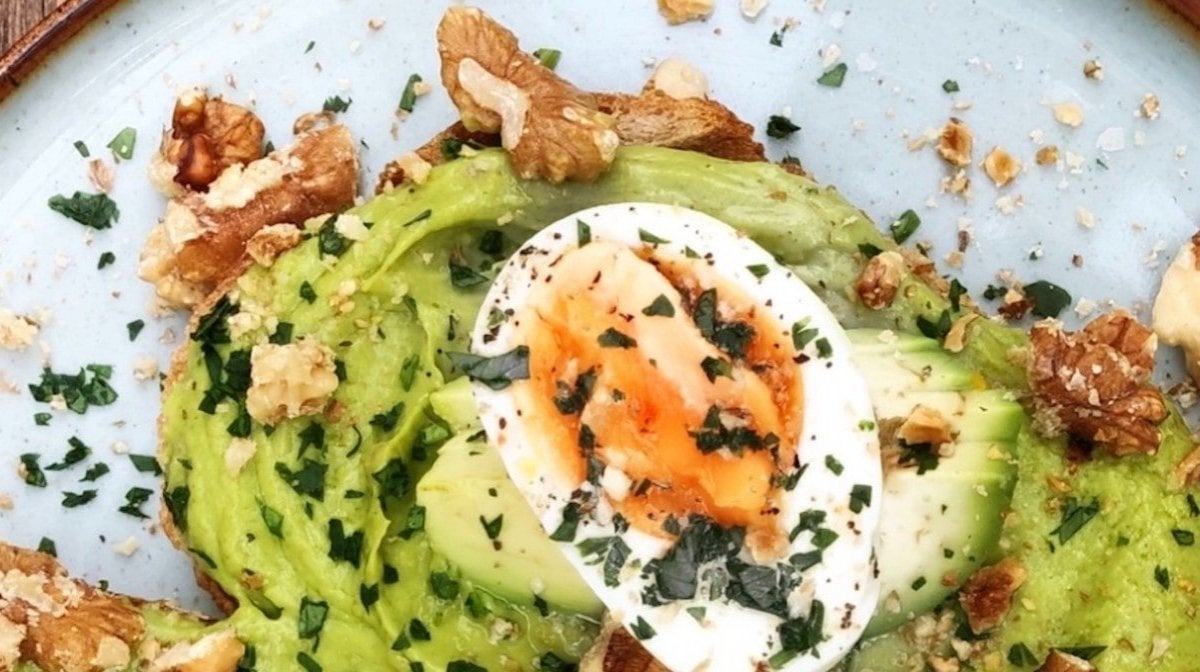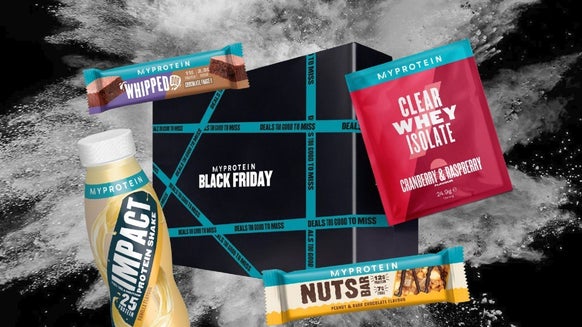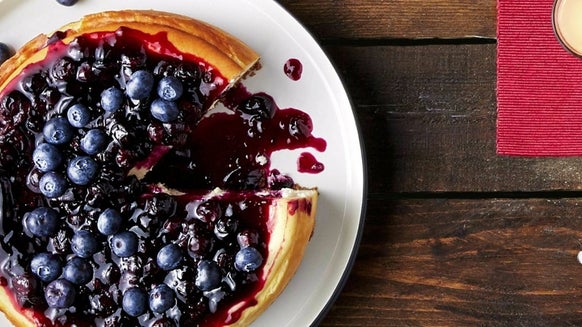25 Keto Foods | Ketogenic Foods List

The ketogenic has grown in both popularity and scrutiny in recent years. You may have heard of the benefits of going keto, but struggled to figure out exactly what foods to eat. This article will explain what the ketogenic diet is and present the best ketogenic foods to eat. To make it easy to understand, ketogenic foods will be divided into different food groups.

What is the Ketogenic Diet?
The ketogenic diet is a low-carb, high-fat diet that limits carbohydrate consumption to 50g per day.1 The aim of the diet is to reduce carbohydrate intake to a level that puts the body in a state of ketosis. When in this state, the body burns fat for fuel instead of glucose. There is evidence suggesting that ketogenic diets can help with fat loss and appetite control.1
A ketogenic diet can be restrictive, and it may be difficult to include enough fibre in your diet (the NHS recommends 30g a day for adults) . This ketogenic diet food list will help you follow a keto diet while helping to reduce the risk of any nutritional deficiencies.
Ketogenic Diet Food List
Animal Proteins
1. Chicken thighs
Chicken thighs contain more fat than chicken breasts. This makes them a good keto option as many of your calories will need to come from fat. For those with high daily calorie requirements, fattier cuts of meat will be a good source of energy. Chicken thighs are also rich in B vitamins and selenium.
2. Pork chop
An average-sized pork chop (112g) provides you with 35g of protein. Pork also contains plenty of essential amino acids, which are important for building and maintaining lean muscle mass.2 Pork’s also a good source of B vitamins and minerals such as phosphorous and selenium.
3. Sirloin steak
A good red meat option for followers of a keto diet. Sirloin steak’s high in iron, zinc and B12, which are all important for energy production.3 A protein source that’s high in essential amino acids, an average-sized steak (6oz or 170g) will provide 40g of protein and 362 calories.
Fish:
4. Salmon
Salmon is an oily fish high in omega-3 fatty acids, which have been associated with a wide variety of health benefits, including the reduced risk of chronic disease. Salmon is also high in vitamin D, E and B12.
5. Mackerel
Mackerel is another oily fish high in omega-3. A medium-sized fillet (80g) will provide 16g of protein and 226 calories. Mackerel is also an excellent source of B12 and selenium.
Dairy:
6. Eggs
One medium egg (57g) contains roughly 7g of protein and 77 calories. The yolk of an egg provides a wide range of vitamins, including vitamins A, E, D and B12. Eggs are very versatile and can make a wide variety of low carb breakfasts (omelette, scrambled, poached, etc.) and are a good option for a high-protein snack or boosting the protein content of a salad.
7. Greek yoghurt
Full-fat Greek yoghurt is a good source of both protein and calcium. It’s perfect for a healthy breakfast option with some low-sugar fruit, and it also makes a good pre-bed snack due to its casein content — the slow-digesting protein that can help reduce muscle protein breakdown.5
8. Buffalo Mozzarella
Mozzarella is rich in calcium, protein and vitamin B12. Mozzarella is also very low in sugar — adding it to meals will help boost your protein and calorie intake while also keeping your carb intake low.
9. Cheddar cheese
As with other cheeses, cheddar is high in calcium, B12 and phosphorous. An average portion size of 30g provides 124 calories, 7.5g of protein and 10g of fat.
Vegetables:
10. Broccoli
A good source of fibre (2.8g per 100g) and abundant in vitamin C and vitamin K1, broccoli is a cruciferous vegetable that’s low in carbohydrates, with only 5.4g per 100g serving.
11. Spinach
Spinach is very high in vitamin K1, vitamin A and vitamin C. Spinach contains a minimal amount of carbohydrates, making it a great option to include in keto-friendly meals to boost fibre and micronutrient content.
12. Leeks
Leeks are an edible allium, a group that also includes garlic, spring onions and onions. Leeks contain similar antioxidants to garlic and onions and are also a good source of vitamin B1, B9 and C. They’re low in calories, carbohydrates and provide 2.2g of fibre in every 100g serving.
13. Sprouts
Sprouts are high in vitamin K1, potassium and vitamin. They’re also a good source of fibre, with 2.6g in every 100g (roughly five sprouts). Sprouts are also rich in phytonutrients such as glucosinolates, phenolics, and isoflavone and have been shown to increase the bio-accessibility of minerals.6
14. Cauliflower
A member of the brassica family, cauliflower contains many health-promoting phytochemicals, including polyphenols, carotenoids and flavonoids.7 Cauliflower also contains a wide range of vitamins and minerals, including vitamin C, B vitamins and potassium.
15. Mushrooms
Mushrooms are high in minerals such as selenium and potassium. Some mushrooms are also a good source of vitamin D, which can be difficult to obtain in your diet. Mushrooms also act as prebiotics and stimulate the growth of gut microbiota, important for maintaining a healthy gut.8
16. Iceberg lettuce
Lettuce is high in vitamin K1. Iceberg lettuce works well as the base of your salad for a low-calorie source of fibre.
17. Cucumber
Like lettuce, cucumber is a low-calorie way to boost your daily fibre content and increase the volume of meals. Cucumber is also a source of vitamin K1, potassium and B5.
Fruit:
18. Rhubarb
Rhubarb is high in fibre (2.2g per 100g), and research has shown it can aid the health of the gut by helping to protect the intestinal barrier and maintaining the balance of healthy gut bacteria.9 Rhubarb is also a source of potassium, calcium, manganese and vitamin C.
19. Raspberries
Raspberries are high in antioxidants, specifically anthocyanins and ellagitannins.10 An excellent source of fibre, with 6.7g per 100g, raspberries are also a source of potassium, magnesium, manganese and vitamin C.
20. Blueberries
Blueberries get their distinctive blue colour from anthocyanin pigments, a potentially health-promoting phytochemical. 10g of blueberries (roughly 15 blueberries) contains 1g of carbohydrates; add them to smoothies and yoghurt for a keto-friendly snack.
21. Apricots (fresh)
One apricot weighs approximately 35g, containing 3g of carbohydrates and 0.6g of fibre. Apricots are packed with carotenoids, the antioxidant that gives them their orange colour, that can be beneficial for eye health.11
Fats and Oils:
22. Almonds (flaked)
As with most nuts, almonds are high in healthy fats — monounsaturated and omega-3 and omega-6 fatty acids. Almonds are high in fibre and provide a wide variety of vitamins and minerals, including magnesium, zinc, iron, calcium, vitamin E and B vitamins.
Due to their impact on satiety, almonds have been shown to be a helpful snack for weight management.12 A 10g portion of almonds (roughly 10 almonds) provides 62 calories, 5g of fat, 2g of protein, 1.6g of fibre and 0.7g carbs.
23. Walnuts (kernel only)
Like other nuts, walnuts are high in calories and provide a range of potential health benefits. Regular consumption of nuts has been linked to benefits on a range of health outcomes.13 Walnuts are particularly high in omega-3 and omega-6 and contain magnesium, phosphorous, zinc, iron and vitamin B6.
24. Olive oil
Olive oil is fat source high in monounsaturated and polyunsaturated fats. Olive oil is also high in polyphenols, antioxidants believed to have a range of health-promoting properties.14
25. Avocados
Half an avocado is approximately 70g, providing 160 calories, 14g of fat, 6.3g of carbohydrates and 3.5g of fibre. High in monounsaturated fat, avocados are also a source of vitamin E, B6 and potassium.
Take home message
A ketogenic diet is a very low-carb, high-fat diet. Because carbohydrates are restricted to less than 50g per day on the diet, it’s important to make sure energy and nutrients are consumed from other dietary sources.
If you’re interested in following a ketogenic diet, consider eating some of the foods listed in this article to make sure you consume a range of vitamins and minerals as well as adequate amounts of protein and fibre.

1. Dowis K, Banga S. The Potential Health Benefits of the Ketogenic Diet: A Narrative Review. Nutrients. 2021;13(5):1654. Published 2021 May 13. doi:10.3390/nu13051654
2. Witard OC, Wardle SL, Macnaughton LS, Hodgson AB, Tipton KD. Protein Considerations for Optimising Skeletal Muscle Mass in Healthy Young and Older Adults. Nutrients. 2016;8(4):181. Published 2016 Mar 23. doi:10.3390/nu8040181
3. Tardy AL, Pouteau E, Marquez D, Yilmaz C, Scholey A. Vitamins and Minerals for Energy, Fatigue and Cognition: A Narrative Review of the Biochemical and Clinical Evidence. Nutrients. 2020;12(1):228. Published 2020 Jan 16. doi:10.3390/nu12010228
4. Ruxton CH, Reed SC, Simpson MJ, Millington KJ. The health benefits of omega-3 polyunsaturated fatty acids: a review of the evidence. J Hum Nutr Diet. 2004 Oct;17(5):449-59. doi: 10.1111/j.1365-277X.2004.00552.x. PMID: 15357699.
5. Weinert DJ. Nutrition and muscle protein synthesis: a descriptive review. J Can Chiropr Assoc. 2009;53(3):186-193.
6. Miyahira RF, Lopes JO, Antunes AEC. The Use of Sprouts to Improve the Nutritional Value of Food Products: A Brief Review. Plant Foods Hum Nutr. 2021 Jun;76(2):143-152. doi: 10.1007/s11130-021-00888-6. Epub 2021 Mar 15. PMID: 33719022.
7. Ahmed FA, Ali RF. Bioactive compounds and antioxidant activity of fresh and processed white cauliflower. Biomed Res Int. 2013;2013:367819. doi:10.1155/2013/367819
8. Jayachandran M, Xiao J, Xu B. A Critical Review on Health Promoting Benefits of Edible Mushrooms through Gut Microbiota. Int J Mol Sci. 2017;18(9):1934. Published 2017 Sep 8. doi:10.3390/ijms18091934
9. Xiang H, Zuo J, Guo F, Dong D. What we already know about rhubarb: a comprehensive review. Chin Med. 2020;15:88. Published 2020 Aug 26. doi:10.1186/s13020-020-00370-6
10. Rao AV, Snyder DM. Raspberries and human health: a review. J Agric Food Chem. 2010 Apr 14;58(7):3871-83. doi: 10.1021/jf903484g. PMID: 20178390.
11. Johnson EJ. The role of carotenoids in human health. Nutr Clin Care. 2002 Mar-Apr;5(2):56-65. doi: 10.1046/j.1523-5408.2002.00004.x. PMID: 12134711.
12. Tan SY, Mattes RD. Appetitive, dietary and health effects of almonds consumed with meals or as snacks: a randomized, controlled trial. Eur J Clin Nutr. 2013;67(11):1205-1214. doi:10.1038/ejcn.2013.184
13. de Souza RGM, Schincaglia RM, Pimentel GD, Mota JF. Nuts and Human Health Outcomes: A Systematic Review. Nutrients. 2017;9(12):1311. Published 2017 Dec 2. doi:10.3390/nu9121311
14. Gorzynik-Debicka M, Przychodzen P, Cappello F, et al. Potential Health Benefits of Olive Oil and Plant Polyphenols. Int J Mol Sci. 2018;19(3):686. Published 2018 Feb 28. doi:10.3390/ijms19030686






